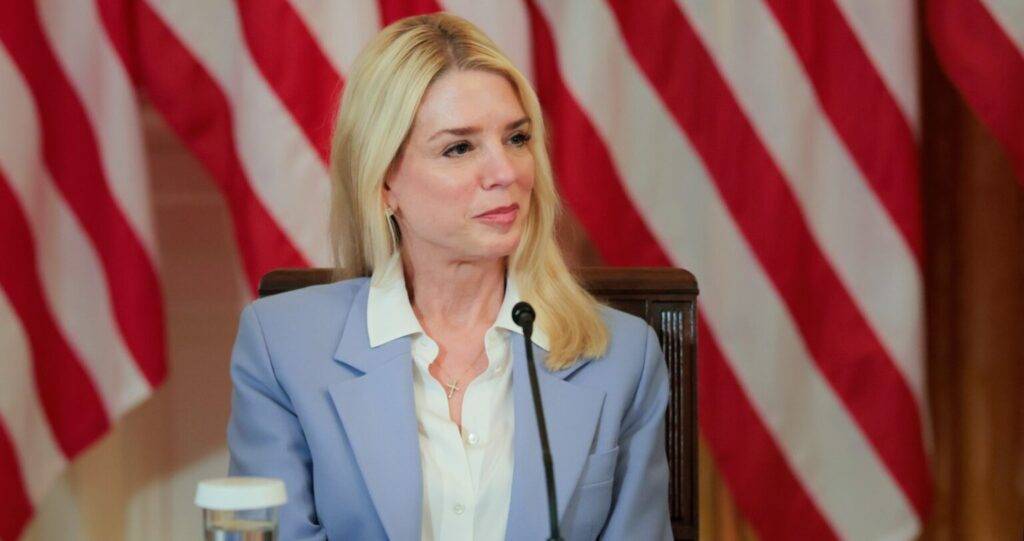The Justice Department officially informed the American Bar Association on Thursday that it will no longer adhere to its ratings process for judicial nominees. It says that the system is unfair and “invariably and demonstrably” favors nominees put forward by Democratic administrations.

U.S. Attorney General Pam Bondi’s letter informing ABA President William R. Bay of the move comes as Republicans have been in a long-running legal battle with the country’s largest association of lawyers, and this is the latest round of bad news.
“For several decades, the American Bar Association has received special treatment and enjoyed special access to judicial nominees,” Bondi said in the letter. “In some administrations, the ABA received notice of nominees before a nomination was announced to the public. Some administrations would even decide whether to nominate an individual based on a rating assigned by the ABA.”
The Department of Justice said in the letter that it will no longer grant the ABA the “special treatment” and first access it has received, revoking decades of precedent where the ABA interviewed and vetted potential members of the incoming DOJ team.
“Accordingly, while the ABA is free to comment on judicial nominations along with other activist organizations, there is no justification for treating the ABA differently from such other activist organizations and the Department of Justice will not do so.”
“Nominees will also not respond to questionnaires prepared by the ABA and will not sit for interviews with the ABA,” Bondi said.
Democrats immediately launched a barrage of smears and insults at Bondi and the DOJ.
In a statement released Friday, Senate Minority Whip Dick Durbin, who is the top Democrat on the Senate Judiciary Committee, strongly opposed the action.
He said that denying the Bar Association access to nominees goes against a long-standing tradition that has been followed by both Republican and Democratic presidents.
“This is a seismic change in the judicial nominations process — and an unjustified and blatantly political move by the Trump Administration,” said Durbin.
While the ABA has been rating White House judicial nominees for a long time, they have often been deeply biased against the Trump administration.
The group said that 10 of the first nominees for the bench by the Trump administration were not qualified. Even so, eight of those picks were approved by Senate Republicans.
Durbin said that Bondi’s decision to weaken the Bar Association’s screening powers would make it easier for Trump to get nominees confirmed, even if they aren’t qualified or have enough experience to serve on the federal bench for life or have “demonstrated bias” against protected groups of Americans.
But the group has already said bad things about how the Trump administration handles federal courts.
The Bar Association in March published a statement pushing back on attacks from the White House and its allies on judges who stymied the president’s executive agenda, calling them part of a “disconcerting pattern.”
“If a court issues a decision this administration does not agree with, the judge is targeted,” the statement read. “If a lawyer represents parties in a dispute with the administration, or if a lawyer represents parties the administration does not like, lawyers are targeted.”
The move to keep the ABA from having a say in the nominations process for judges comes just a few days after Trump chose Emil Bove to fill a key opening on the Third Circuit.
Bove, who used to be the acting deputy attorney general for the Justice Department, caused a stir when he told federal prosecutors to drop corruption charges against New York City Mayor Eric Adams.
The Judiciary Committee will hold its first hearing on the dozen or so judicial nominees that the Trump administration has announced so far next week. However, the committee has not yet named any witnesses.